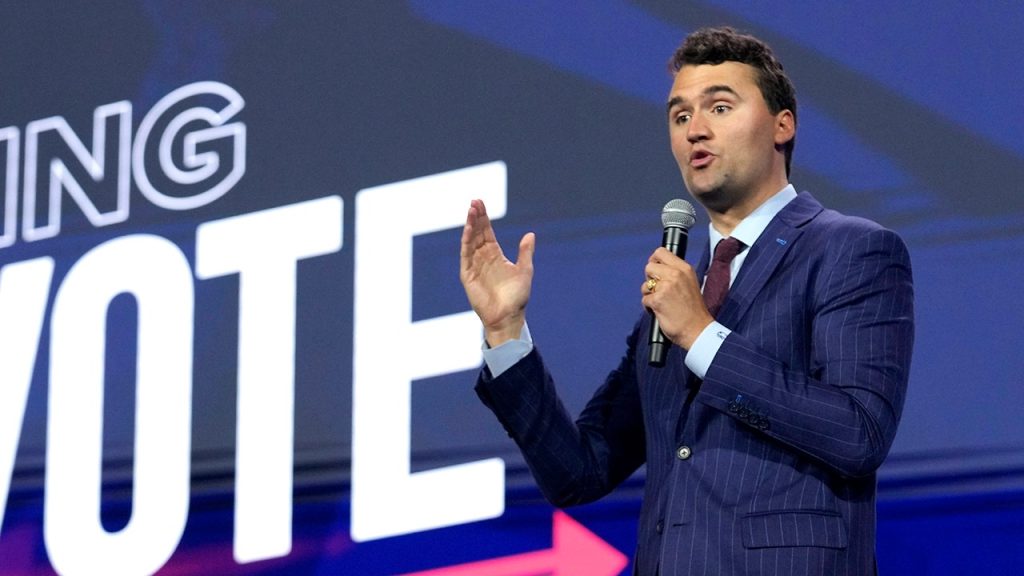Remembering Charlie Kirk: A Steadfast Friend of Israel Despite Complexities
In the wake of Charlie Kirk’s tragic assassination, a disturbing narrative has emerged attempting to distance the conservative activist from his well-documented support of Israel. Within hours of Kirk’s death, social media platforms were flooded with baseless conspiracy theories, prompting the Anti-Defamation League’s Center on Extremism to identify thousands of posts containing unfounded claims. These attempts to rewrite Kirk’s stance on Israel seem particularly calculated, as they emerged before authorities had even identified a suspect in his murder. Recognizing this troubling trend, Israeli Prime Minister Benjamin Netanyahu publicly honored Kirk as a “lion-hearted friend of Israel” who “fought the lies and stood tall for Judeo-Christian civilization.” Similarly, Mike Huckabee, Washington’s ambassador to Israel, condemned those attempting to “make up outrageous lies while exploiting the death of Charlie Kirk,” emphasizing that such opportunists would never match Kirk’s character or impact.
The depth of Kirk’s commitment to Israel was underscored by Rabbi Pesach Wolicki, who revealed that he had spoken with Kirk via Zoom the night before his assassination. This conversation, initiated by Kirk himself, was meant to prepare for a campus tour where he anticipated facing numerous questions about Israel. “Why would he do that if he had abandoned Israel?” Wolicki reasoned, pointing out that just a month earlier, Kirk had faced criticism for being “too supportive” of Israel. The rabbi attributed Kirk’s unwavering support to his evangelical Christian beliefs, which aligned with his conviction about the Jewish nation’s right to thrive. “He said publicly many times that he believed the Land of Israel belongs to the Jewish people and that he supported Israel’s war against Hamas,” Wolicki explained. “He was not soft on our enemies. He supported Israel, even when he was critical.” This nuanced position—supporting Israel while occasionally offering constructive criticism—reflects a thoughtful approach rather than any abandonment of support.
Kirk’s public statements consistently demonstrated his firm stance in defense of Israel, particularly evident in a viral video from a May debate at Cambridge. There, he forcefully articulated, “When you declare war on Israel, expect a firestorm in reaction,” referring to Hamas’s October 7 attack. He acknowledged the tragic reality that civilians die in war—a fact he lamented—but placed responsibility squarely with “the leadership of Hamas, not the Israeli government, for fighting this defensive war.” His position was unambiguous: “There is a good guy and there is a bad guy.” This clarity of vision was characteristic of Kirk’s approach to geopolitical issues, where he often rejected moral equivalence in favor of principled positions based on his understanding of right and wrong.
During an appearance on Megyn Kelly’s podcast last month, Kirk described himself as having a “bulletproof resume” regarding his defense of Israel across various platforms. He spoke movingly about his personal connection to the country, saying, “I believe in the scriptural land rights given to Israel, I believe in the fulfillment of prophecy… My life was changed in Israel—the spiritual energy there is so amazing. I want them to win, and I’ve said that repeatedly.” Kirk’s support was rooted in both religious conviction and geopolitical considerations: “I want civilization to win. I want the West to win. I don’t want the Islamo-fascist barbarians to storm the gates of Jerusalem.” He did express concern that sometimes he faced more backlash for criticizing Israeli government policies than Israelis themselves, warning that hostile reactions to legitimate criticism could eventually weaken even the strongest advocates. This balanced approach—maintaining steadfast support while allowing for thoughtful critique—demonstrated Kirk’s sophisticated understanding of the complexities involved.
Those who knew Kirk personally have emphasized the authenticity of his support for Israel. Josh Nass, who met Kirk in 2012 when Turning Point USA was just launching, explained that Kirk’s worldview fundamentally incorporated Israel: “If you take Israel out of the picture, what Charlie dedicated his life to simply falls apart… His love for Israel was incredibly real and sincere. I know that because he told me so himself.” This sentiment was echoed by Israel Ganz, head of the Yesha Council, who described Kirk as “a friend and lover of Israel.” Even one of Israel’s Chief Rabbis, David Yosef, sent a letter to Kirk’s family expressing “deep sorrow” over the assassination of “a clear and unwavering voice of truth.” These testimonials from diverse figures within Israel and the Jewish community speak to the genuine nature of Kirk’s support, transcending political opportunism.
In a poignant demonstration of the bridge-building Kirk championed, dozens of Christians and Jews gathered atop Jerusalem’s Temple Mount to honor his memory following his death. They joined in prayer for Kirk’s widow and children, offering strength and solidarity in their time of grief. This interfaith gathering embodied the spirit of coexistence that Kirk promoted throughout his career, even as he maintained firm convictions about Israel’s right to defend itself. The attempt by some to posthumously recharacterize Kirk’s position on Israel not only disrespects his memory but misrepresents a man whose support for the Jewish state was firmly rooted in his religious beliefs, historical understanding, and commitment to Western civilization. While Kirk was willing to engage critically with specific policies, his fundamental support for Israel’s existence and security remained constant—a nuanced position that deserves accurate representation in discussions of his legacy.


